2013 Pivot Phoenix DH Bike
(discontinued)
| Where To Buy | |||
|---|---|---|---|
Free shipping on orders over $50 (continental U.S. only).
International shipping available. Some exclusions apply. |
Free shipping on orders over $50 (continental U.S. only).
International shipping available. Some exclusions apply. $8,299.00
|
||
Free shipping on orders over $50 (continental U.S. only).
International shipping available. Some exclusions apply. |
Free shipping on orders over $50 (continental U.S. only).
International shipping available. Some exclusions apply. $6,599.00
|
||
Pivot Firebird Race XT Mountain Bike
$6,599.00
|
|||
Reviewed by Sean “Griz” McClendon. Photos by Ian Collins.
Life without gravity is bunk. This bike cured my depression and ended a 23-month dry spell of no downhill. I was excited to return to riding downhill on a dual compact linkage design - yes, the beloved DW-Link by means of the Phoenix DH by Pivot Cycles.

I had a premeditated idea of what this design would require from the body based on my past experience on the Iron Horse Sunday, a parking lot test on Kyle Strait’s 2011 Phoenix race bike, and hours of relearning to dirt jump on his 2011 Pivot M4X slalom race bike. It was a bittersweet day when Shaun Palmer inherited that MDW 4X. I still miss it. However, the Pivot Phoenix exceeded all expectations. Especially after we went to Whistler. With its spacious cockpit, relaxed stock head angle, low center of gravity, evenly displaced weight and balanced geometry this bike has impressed me from ride one. Sunday lovers can rejoice. The Pivot Phoenix DH is the answer you’ve been waiting for.
Meet The Phoenix
Developed in conjunction with Dave Weagle, Kyle Strait, and the Pivot/LEX team, the Phoenix is the top of the line downhill offering from Pivot Cycles. We’ve seen the Pivot Phoenix being raced on the World Cup circuit for a few years now and it’s popular amongst those who ride one. It uses the tried and true DW-link suspension system, which has a long and successful history in the racing scene. Personally, I watched as much Luke Strobel footage as I could find online to check his technique onboard the Phoenix before I actually rode it. Luke’s got the body English well figured out for this bike and I took note.

Key Specs
- 8.15-inches (207mm) of travel
- 1.5-inch headtube
- 64-degree head angle with (adjustable +/- ½, 1, or 1.375-degrees with the Cane Creek Angleset)
- 17.28-inch chainstays
- Swappable dropouts for wheelbase adjustment
- 13.6-inch bottom bracket height
- Standard 83mm threaded bottom bracket shell with ISCG05 mounts
- 150mm rear spacing with 12mm through axle
- Complete bikes weigh in at sub 38-pounds (17kg)
- MSRP $2999 for frame and Fox DHX RC4 Coil shock
It was an exciting day when the UPS man dropped off our test bike. Things got nerdy when we opened the box. “Those look like new Shimano Saint levers.” We pull the bike out. “Is that a clutch on the derailleur?” Looks like we get to test out a pre-released Shimano Saint group and Kashima coated 2013 Fox suspension – so juiced! Now that over 300 minutes of ride time are logged over diverse terrain - San Diego, Bellingham and Whistler Bike Park - it’s time to lay down some real talk on how she’s performed and held up.
Pivot has a sizing guide on their website to ensure a correct fit. At 5'10” I chose a large with short dropouts and it fit well. My opinion is to size up if you are within an inch of their suggested height, simply so you can develop the stance this bike requires.
Baller Build Kit
I’ve been awed with the build kit Pivot chose. The new 2013 Shimano Saint group highlighted our test build, a slight difference from the standard SRAM X0 offering from Pivot. Shifting has been crisp and quiet thanks to Shimano's Shadow Plus system. Once you ride a bike equipped with a clutched rear derailleur, you’ll be forever changed. Braking hasn’t failed and I’m sold on the modulation, lever fit and power of the new Saint. The group is tough, too - I managed to dump her on the front brake lever, and to my surprise, the lever made friends with a rock without breaking. There’s not much more to be said about the new cranks – they’re proven and still get scratched when you smash them into boulders. My least favorite part of the build is the Saint pedals. Shimano still uses tiny pins that don’t hold your feet well and you have to remove each pin and screw them back in minus the washer to get the right pin height. I ended up testing the bike with Deity Decoy aluminum pedals with Vans Gravel shoes. This combo feels fantastic and I’m sticking to it.

Gravity Light bars, stem and seatpost were included with the build and I have nothing bad to say about the group. At 800mm wide, the Gravity Light bars had a familiar bend and sweep, which was nice. My width preference is under 800mm and rather than chopping the bars, I had Deity send over a set of Dirty 30’s for me to test along with the pedals. That being said, the Gravity line of components is great. DT Swiss EX 500 rims on 350 hubs with bladed spokes made for a lightweight set of race wheels. Old Griz would have eaten those hoops up faster than a California burrito, but my new carcass is about 165-pounds soaking wet and I only managed to put one dent in the rear hoop while spokes have been tensioned twice. DT Swiss makes great product and the lighter you are, the more durable their product becomes.
Suspension Performance
Suspension so good it’ll want to make you slap yo’ mamma. Equipped with 2013 Kashima coated Fox 40 and RC4 I’ve never felt so taken care of, honestly. Once we found the right settings it was on. Speed naturally increased, high frequency chatter bumps felt smooth, high-speed compressions felt like fluff, and I could go on for days about how nice the pop felt when pumping and jumping. I found the bike liked to float on top of rough bumps when accelerating and braking with the occasional spike. A semi-steep root section on Whistler's Tech Noir trail comes to mind when I think of the bike under acceleration forces over high-frequency compressions. It was dry and I felt comfortable as I let her rip through the roots. As predicted, the bike settled into a float and a big grin followed as it felt like I was blitzing whoops like Ryan Villopoto.

Under bumpy breaking situations, the Fox 40 remained stable up front and the bike was active in the rear. The rear end would spike when I was over cooking but no way near as bad as I remember how the Sunday kicked.
Under pedal forces, no effort felt like it was being wasted and the bike sat high in its travel. She pedals efficiently and has amazing acceleration when you sprint. I managed to pass three XC dudes in spandex and made Lauren Daney dry heave on a climb out of my local spot on this bike. Big-ups, DW-link!

Tuning the rear shock is difficult on the Phoenix, but the weight displacement benefit from where the shock is located outweighs the task of reaching the controls of the Fox RC4. Pivot did what they could to provide access to the rear shock controls without compromise. Eventually, I found settings on the rear shock that worked for me. With a 400-pound spring and 125psi in the can, I adjusted my clickers in from wide open. The final settings looked like so: rebound 12/16 clicks, low-speed compression 10/18 for general use and 16/18 for jumping, high-speed compression 9/13, and bottom-out one half turn out from firm.
Pivot is quick to admit that their design is similar to the Iron Horse Sunday, but it's not the same - "The Sunday took the concept of using a position sensitive shock as a bottom out device. Phoenix DH shares a similar leverage ratio curve for the first part of the travel, and then remains slightly progressive through the end travel (the opposite of the Sunday). The Phoenix DH runs slightly higher spring rates and a curve that is more in line with what we developed for the Pivot Firebird." This difference is notable and appreciated, especially on large hits.
Unfortunately, the spring in the Fox 40 likes to rattle around and make noise. I’ve heard many complaints about the sound of the 40 but I was too busy hauling ass and having fun to let spring-chatter bother me. Noise does not affect the performance of the 40 and I’ve never felt performance this good from Fox. It was a wise decision from Pivot to spec the fork on the Phoenix.
Frame Durability
Chips in paint are inevitable and we definitely got a few from shuttle runs and shipping on the top tube. Pivot uses thick vinyl graphics that protect the down tube, top tube and chainstays. Vinyl is a wise way to decorate a downhill frame. The downtube graphic took the brunt of abuse from shuttle runs and front tire roost. Eventually they’ll need to be replaced but the graphics proved durable.
All these laps later, I’m confident this frame would never buckle underneath me. It feels that solid. Pivot still uses aluminum to make their frame. When this bike is ready to be retired many years from now, the metal can be recycled and made into something else, unlike carbon fiber.

For an aluminum frame, she’s incredibly stiff under forces. Take a close look at the construction of the frame and it's fairly obvious why it's so stiff… hint, it starts with downtube and branches into the triple-butted, hydroformed 6061-aluminum front triangle mated to a one-piece cold forged rear swing arm. My legs are still sort of weak while recovering from a big injury so I found myself carving the bike through turns in full-body fashion with my weight evenly displaced. This technique proved to generate speed but not much flex in the rear end.

Another comparison to the Sunday where the Phoenix shines bright is the pivot bolts and hardware. The linkage uses 16 and 17mm diameter main pivot hardware combines with double row EnduroMax bearings for maximum durability and frame stiffness. I had to tighten the pivot bolts one time and they’ve past every bolt check since. Around 270 minutes of ride time in, I had to tighten the lower shock bolt a quarter-turn. I’ve been happy with the hardware and confident with the dropouts.

What’s The Bottom Line?
If you’re in the market for a new downhill bike and aren’t convinced of carbon fiber, consider the Pivot Phoenix for next season. My unbiased opinion is that this bike performs so well I’d recommend it to privateers of all racing levels. When friends ask me how the bike rides, I tell them that it's playfully stable. It settles when you want her to and she’s got nice pop. The Phoenix builds light, too. Ours was around 38-pounds with room for improvement. The only weakness the Phoenix brought out was weakness in my lower body. The bike itself exceeded all expectations and has minimal downsides, if any. Bottom line, this bike does not suck and gets two thumbs up.
For further details about the Phoenix DH, hit up www.pivotcycles.com.
Itching for more? Check out the entire Pivot Phoenix DH test photo gallery.
Specifications
| Where To Buy | |||
|---|---|---|---|
Free shipping on orders over $50 (continental U.S. only).
International shipping available. Some exclusions apply. |
Free shipping on orders over $50 (continental U.S. only).
International shipping available. Some exclusions apply. $8,299.00
|
||
Free shipping on orders over $50 (continental U.S. only).
International shipping available. Some exclusions apply. |
Free shipping on orders over $50 (continental U.S. only).
International shipping available. Some exclusions apply. $6,599.00
|
||
Pivot Firebird Race XT Mountain Bike
$6,599.00
|
|||







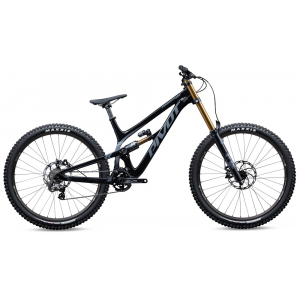
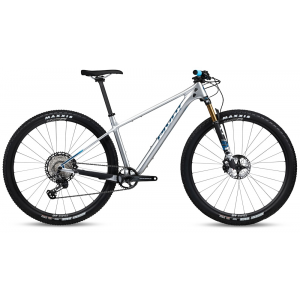
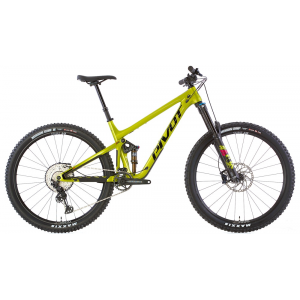
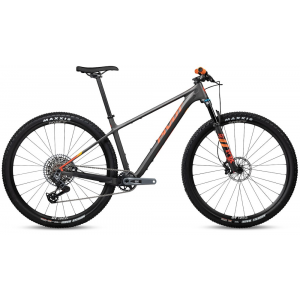
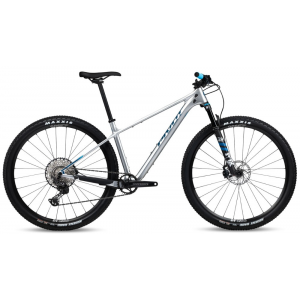
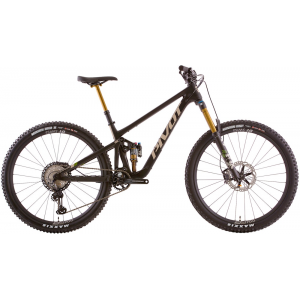
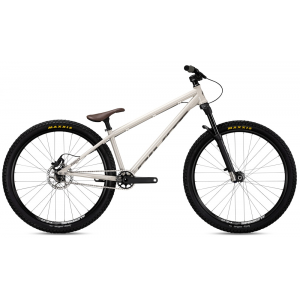
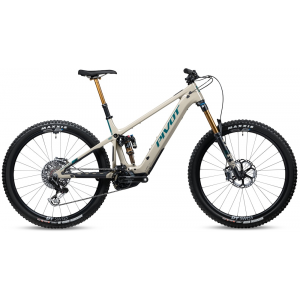
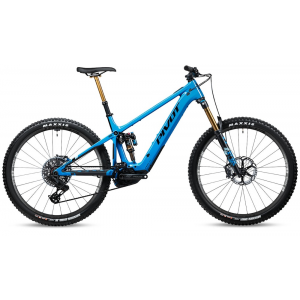
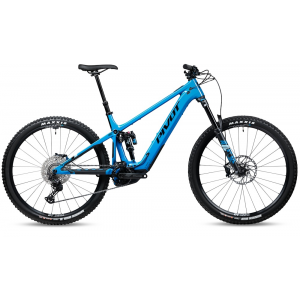
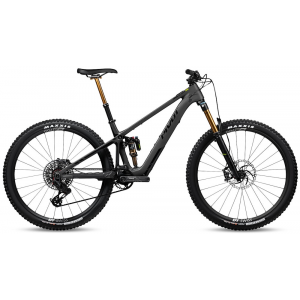
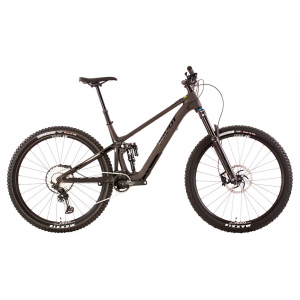
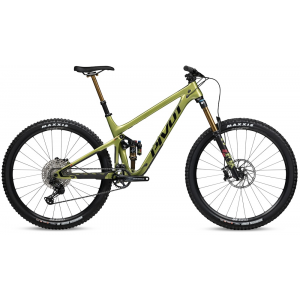
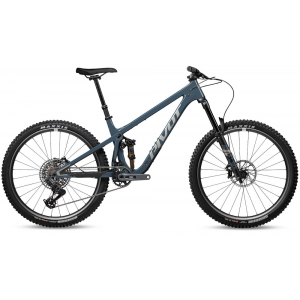
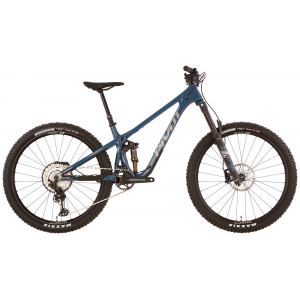
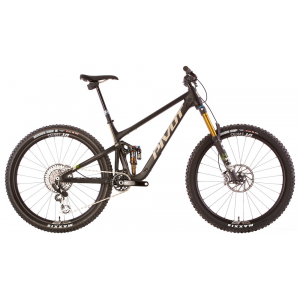
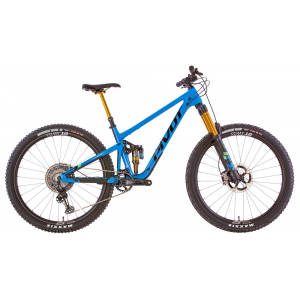
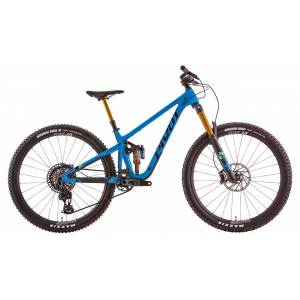
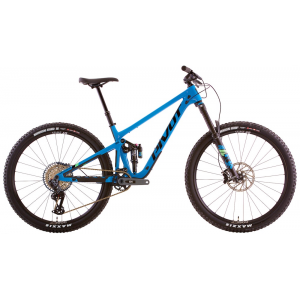
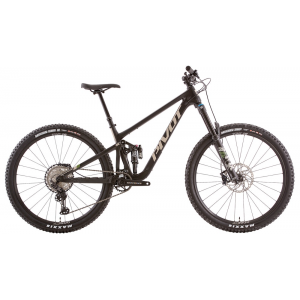
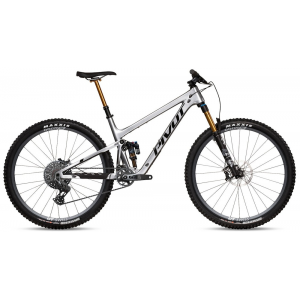
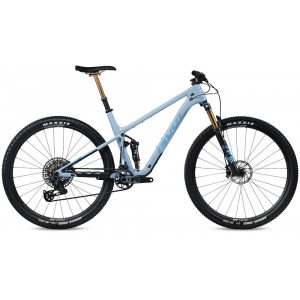
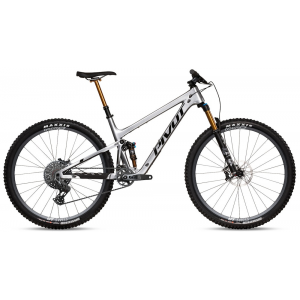
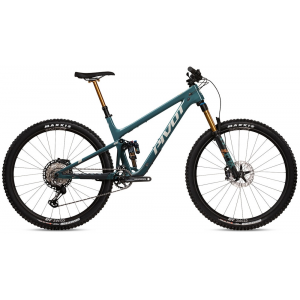
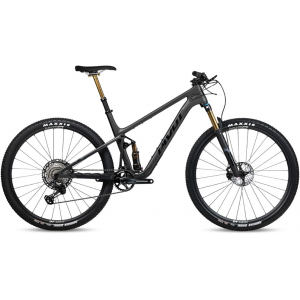
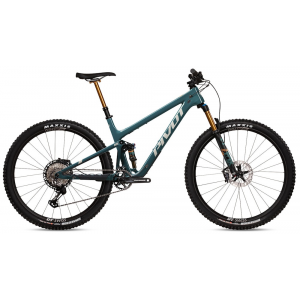
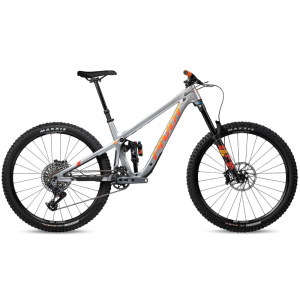
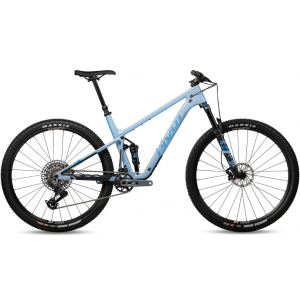
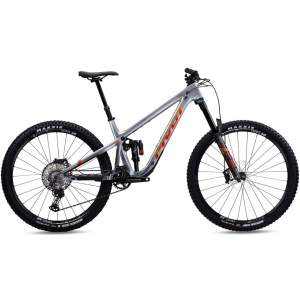
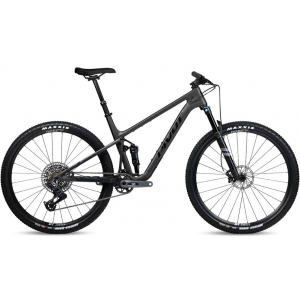
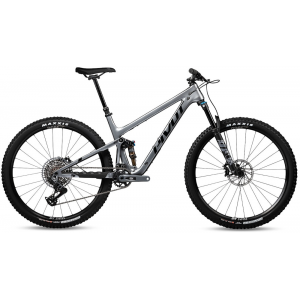
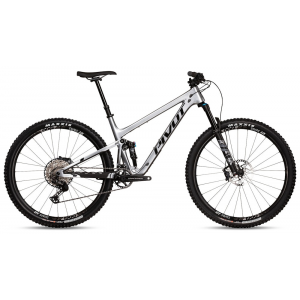
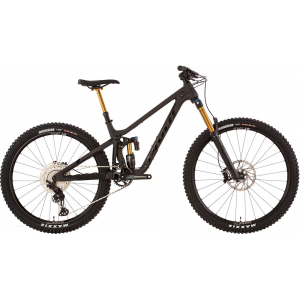
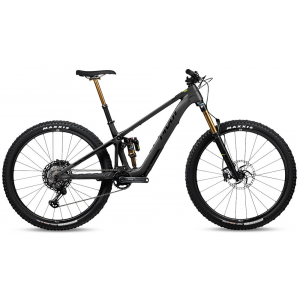
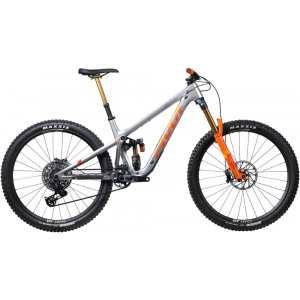
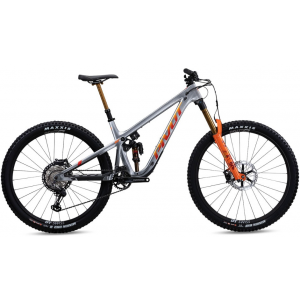

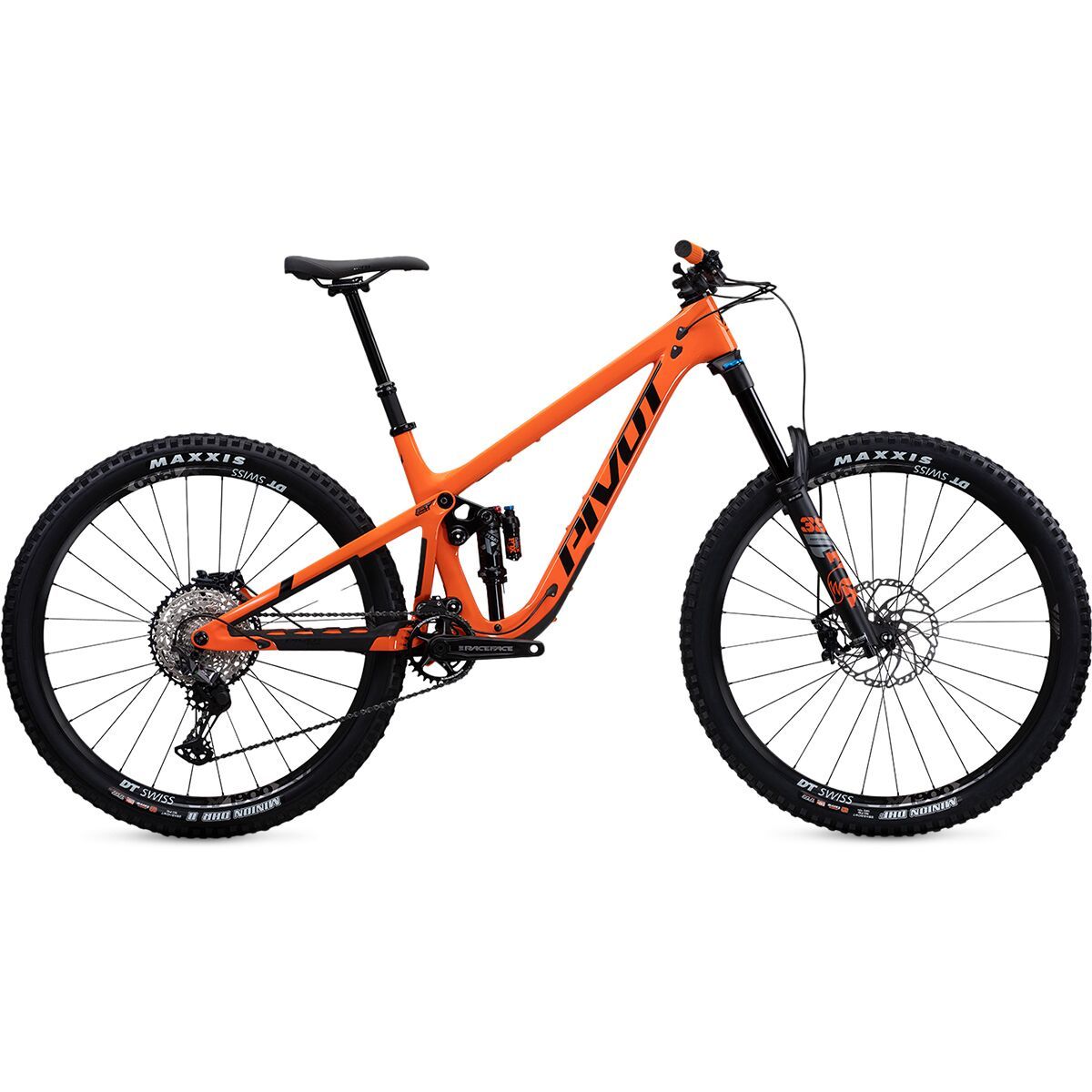
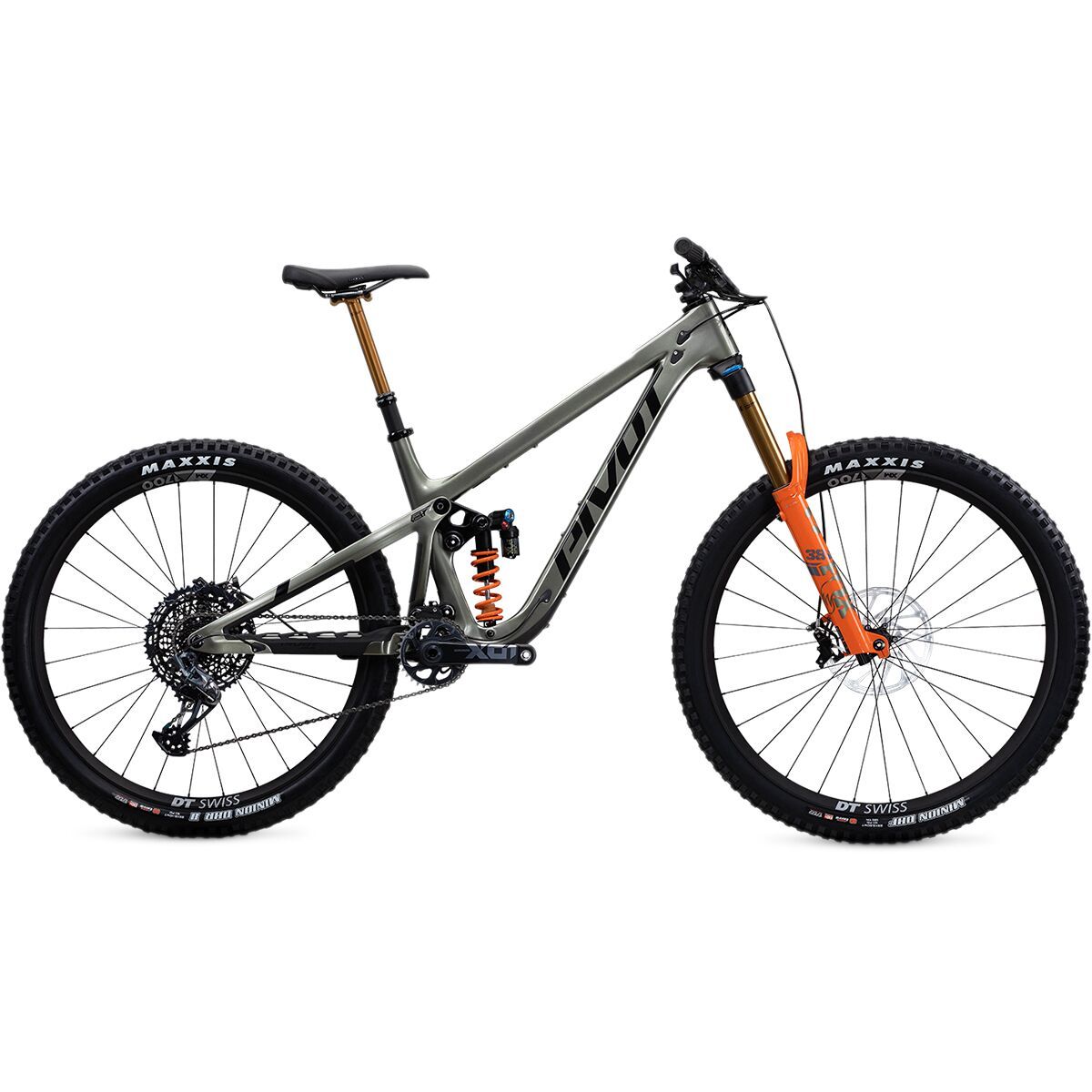

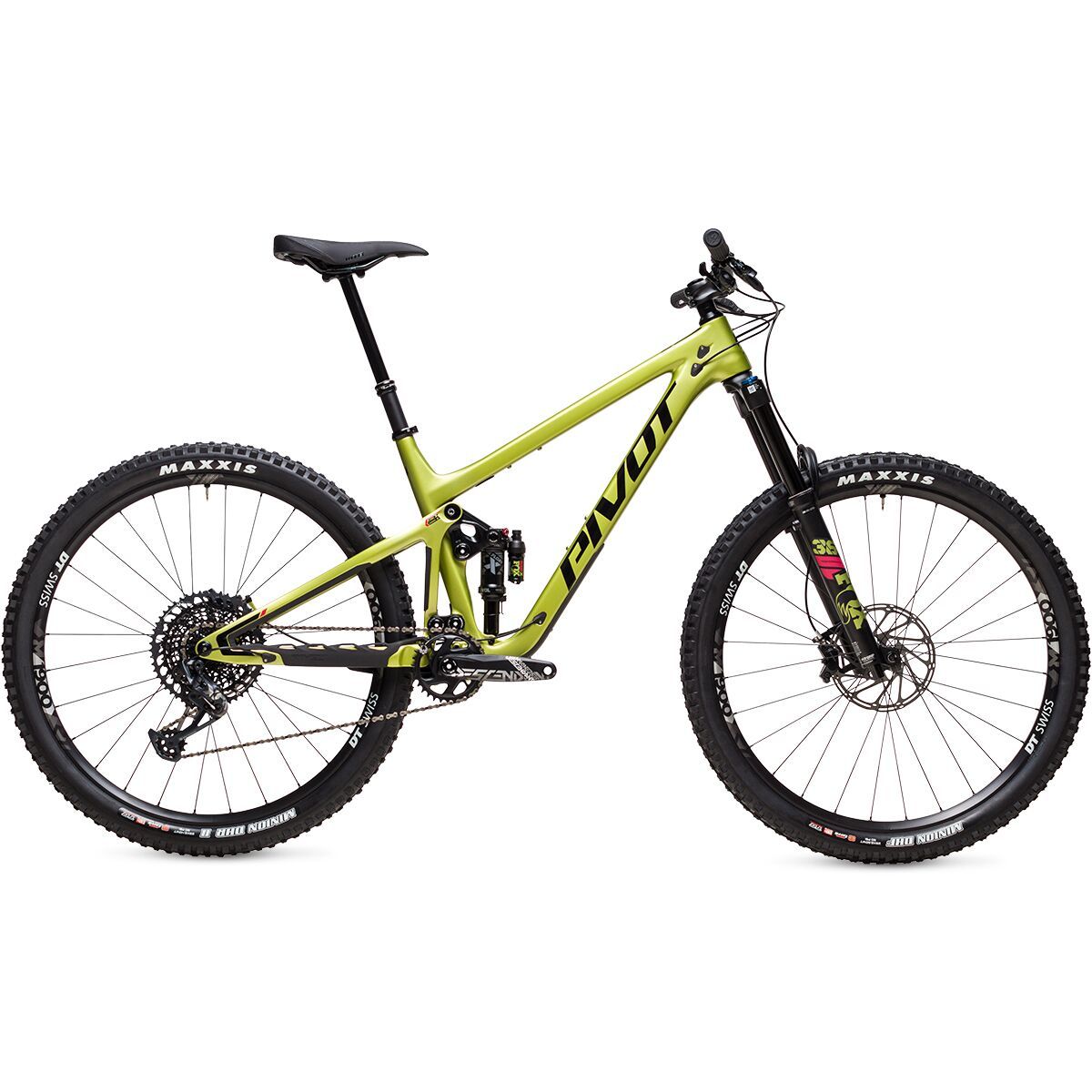
















11 comments
Post a reply to: Tested: Pivot's Phoenix Downhill Bike, Playfully Stable